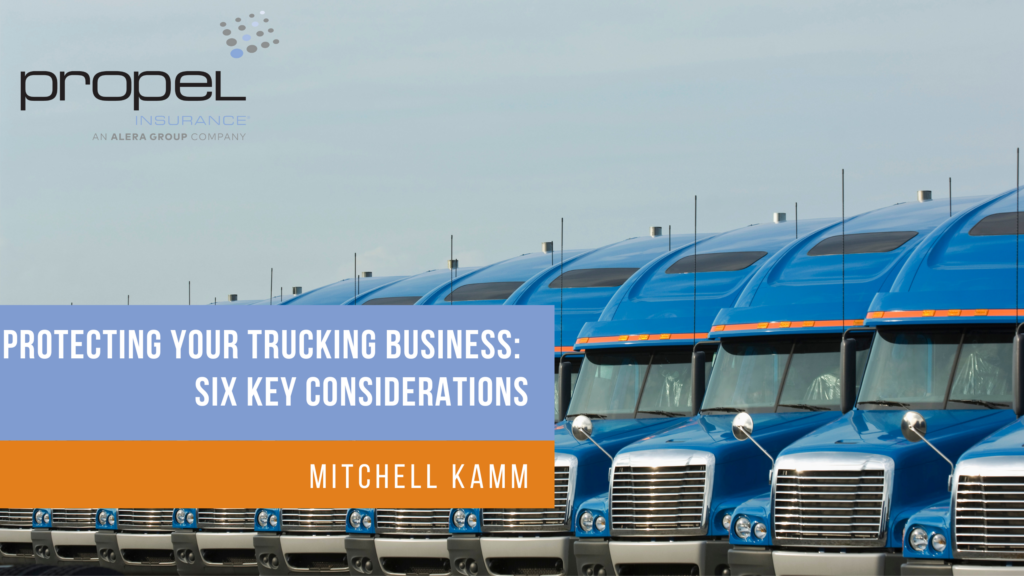Propel provides innovative insurance solutions to thousands of companies across the country. We make it our business to know your world inside and out.
Insights, Transportation
Protecting Your Trucking Business: Six Key Considerations
The cost of operating a truck hit $2.251 per mile in 2022, up from $1.855 per mile in 2021, according to American Transportation Research Institute (ATRI). Fleet operators face rising expenses on all fronts – from fuel and maintenance costs to higher wages and rising insurance rates. Proactive risk management is essential to succeed in this challenging environment.
Litigation Trends Drive Commercial Auto Rate Increases
If it seems like your commercial auto insurance rates keep going up, you’re right. Business Insurance reports that commercial auto insurance rates have increased for 45 consecutive quarters!
Rising litigation costs, known as social inflation, are a major driver behind rate hikes. Oversized “nuclear” verdicts have become more common in recent years – especially in the trucking industry. One accident can put your entire operation in jeopardy. As an example of the disastrous consequences of a crash, FreightWaves says an Illinois-based trucking company filed for bankruptcy after a fatal crash led to a jury award of $10 million.
The impact on insurance has been staggering. The Insurance Information Institute says social inflation increased commercial auto claims costs by $30 billion between 2012 and 2021. At the same time, the commercial auto insurance sector is dealing with general inflation and rising repair costs. As a result, insurers are raising commercial insurance rates, making renewals painful and costly.
Now, more than ever, it’s essential that trucking businesses take control of their risks. It may not save you money this year, but over time, it can make a big difference in your expenses and overall profitability.
Six Key Risk Management Considerations
Proactive risk management pays off. Use the ideas below to improve safety and reduce losses.
-
Embrace Telematics – In the past, you had to trust that your drivers were following safe driving practices. Today, telematics systems enable you monitor and verify driver and safety. According to FreightWaves, some insurance companies use telematics information to offer safe driving discounts. Fleet operators can also use telematics to reduce maintenance costs by monitoring factors like air pressure, fuel economy, and battery consumption.
-
Install Dual-Facing Cameras – Imagine a car cuts in front of one of your trucks, forcing the driver to brake suddenly and crash. Proving your driver’s innocence could be difficult or even impossible – unless you have cameras to show what really happened. By recording the road ahead and behind the driver, dual-facing dashcams provide critical evidence after a claim. In some cases, the footage may exonerate your drivers. In other cases, the footage will provide information to help you train drivers to avoid future incidents.
-
Hire a Safety Consultant – Even when budgets are tight, smart investments can save you money in the long run. A safety consultant who specializes in fleets can ensure you’re complying with all relevant regulations and doing everything possible to prevent crashes. This can help you avoid regulatory fines and insurance claims. It may even help you qualify for lower insurance rates.
-
Be Proactive About Vehicle Maintenance – Vehicle maintenance has become more expensive due to rising labor costs and more expensive vehicle parts. Nonetheless, you still need to be proactive about maintenance. Faulty brakes, underinflated tires, and other maintenance issues can contribute to crashes. According to the FMCSA, motor carriers that have been targeted for interventions due to vehicle maintenance have a 65% higher future crash rate than the national average. By keeping up with fleet maintenance, you can reduce the risk of crashes and avoid more expensive repair costs.
-
Hire the Right Owner-Operators – Imagine you bring on an owner-operator. Two weeks later, the new owner-operator causes a crash and is determined to have been driving under the influence of alcohol. You fire the driver, but the damage to your Compliance, Safety and Accountability (CSA) score has already been done. This scenario plays out every day. One bad owner-operator can destroy your safety score – and then quit. To protect your fleet from this possibility, you need to implement good hiring practices that include thorough background checks.
-
Work with a Broker Who Knows the Trucking Industry – An experienced broker that specializes in the trucking niche can provide you with the risk management support and carrier connections you need to take control of your costs.
Propel has been helping truckers and fleets manage their risks for 100 years. We offer an unrivaled network of insurance partners. Our partnerships with top carriers in the transportation sector help you obtain the best coverage available. In addition to providing you with access to a wide range of insurance programs that cater to the transportation industry, we offer insights to help you understand your coverage and control your exposures. Learn more.

Mitchell brings over 4 ½ years of comprehensive experience in the insurance industry, specializing in the dynamic field of commercial trucking insurance. His dedication to this niche area has allowed him to adeptly navigate its intricacies, presenting innovative solutions to his clients.
More about Mitchell...


